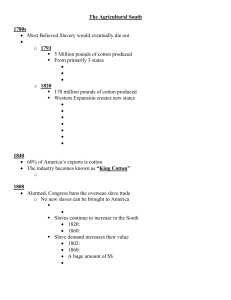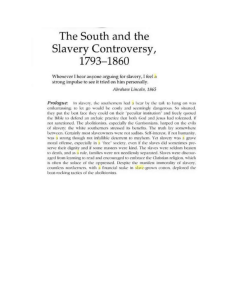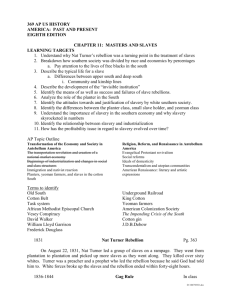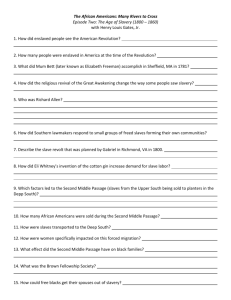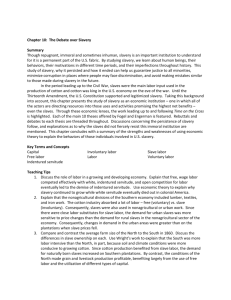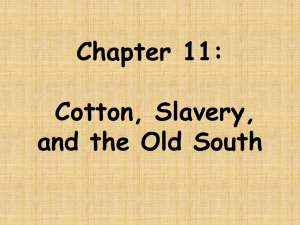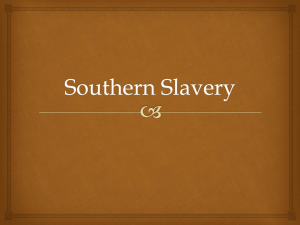Harper`s Apology (1837)
advertisement
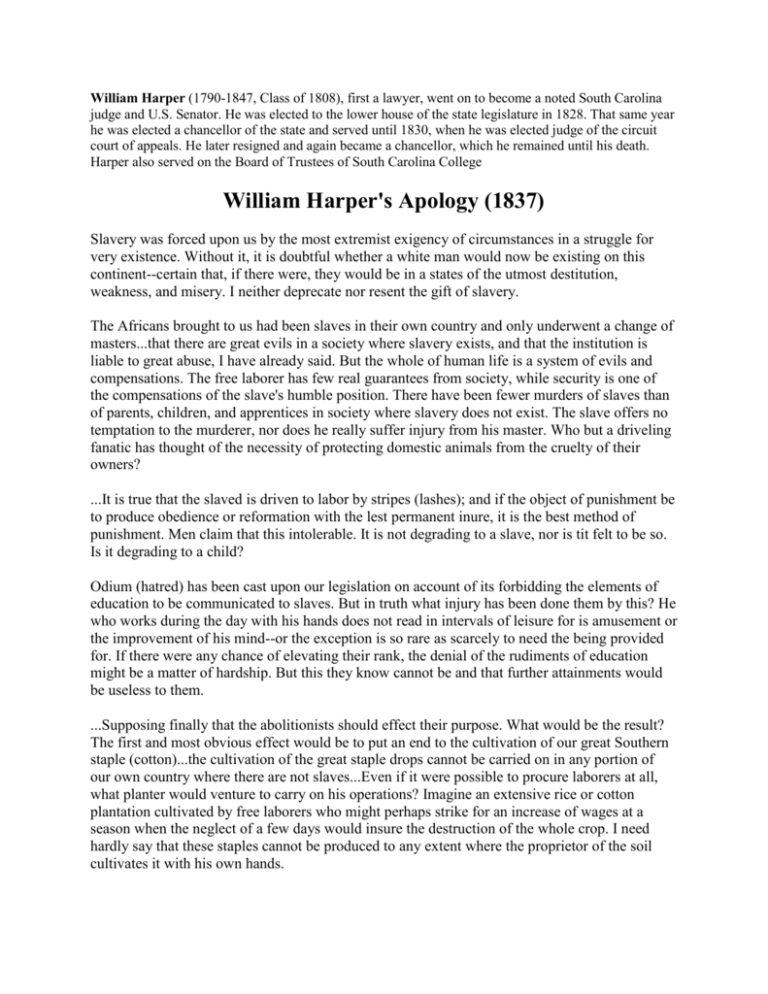
William Harper (1790-1847, Class of 1808), first a lawyer, went on to become a noted South Carolina judge and U.S. Senator. He was elected to the lower house of the state legislature in 1828. That same year he was elected a chancellor of the state and served until 1830, when he was elected judge of the circuit court of appeals. He later resigned and again became a chancellor, which he remained until his death. Harper also served on the Board of Trustees of South Carolina College William Harper's Apology (1837) Slavery was forced upon us by the most extremist exigency of circumstances in a struggle for very existence. Without it, it is doubtful whether a white man would now be existing on this continent--certain that, if there were, they would be in a states of the utmost destitution, weakness, and misery. I neither deprecate nor resent the gift of slavery. The Africans brought to us had been slaves in their own country and only underwent a change of masters...that there are great evils in a society where slavery exists, and that the institution is liable to great abuse, I have already said. But the whole of human life is a system of evils and compensations. The free laborer has few real guarantees from society, while security is one of the compensations of the slave's humble position. There have been fewer murders of slaves than of parents, children, and apprentices in society where slavery does not exist. The slave offers no temptation to the murderer, nor does he really suffer injury from his master. Who but a driveling fanatic has thought of the necessity of protecting domestic animals from the cruelty of their owners? ...It is true that the slaved is driven to labor by stripes (lashes); and if the object of punishment be to produce obedience or reformation with the lest permanent inure, it is the best method of punishment. Men claim that this intolerable. It is not degrading to a slave, nor is tit felt to be so. Is it degrading to a child? Odium (hatred) has been cast upon our legislation on account of its forbidding the elements of education to be communicated to slaves. But in truth what injury has been done them by this? He who works during the day with his hands does not read in intervals of leisure for is amusement or the improvement of his mind--or the exception is so rare as scarcely to need the being provided for. If there were any chance of elevating their rank, the denial of the rudiments of education might be a matter of hardship. But this they know cannot be and that further attainments would be useless to them. ...Supposing finally that the abolitionists should effect their purpose. What would be the result? The first and most obvious effect would be to put an end to the cultivation of our great Southern staple (cotton)...the cultivation of the great staple drops cannot be carried on in any portion of our own country where there are not slaves...Even if it were possible to procure laborers at all, what planter would venture to carry on his operations? Imagine an extensive rice or cotton plantation cultivated by free laborers who might perhaps strike for an increase of wages at a season when the neglect of a few days would insure the destruction of the whole crop. I need hardly say that these staples cannot be produced to any extent where the proprietor of the soil cultivates it with his own hands. And what would be the effect of putting an end to the cultivation of these staples and thus annihilating, at a blow, two-thirds or three-fourths of our foreign commerce? Can any same mind contemplate such a result without terror? Our slavery has not only given existence to millions of slaves within our own territories; it has given the means of subsistence, and therefore of existence to millions of free men in our Confederate States, enabling them to send forth their swarms to overspread the plains and forests of the West and appear as the harbingers of civilization. Not only on our continent, but on the other it has given existence (in textile mills) to hundreds of thousands and the means of comfortable subsistence to millions. A distinguished citizen of our state has lately stated that our great staple, cotton, has contributed more than anything else of later times to the progress of civilization. By enabling the poor to obtain cheap, and becoming clothing, it has inspired a taste for comfort, the first stimulus to civilization. Quoted in A. C. McLaughlin et al., eds., Source Problems in United States History (New York and London, Harper & Brothers, 1918), pp. 419-424.
